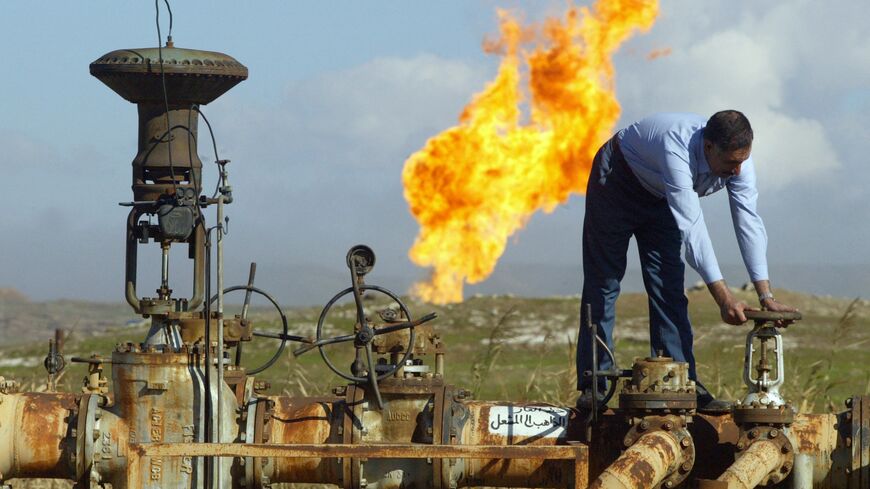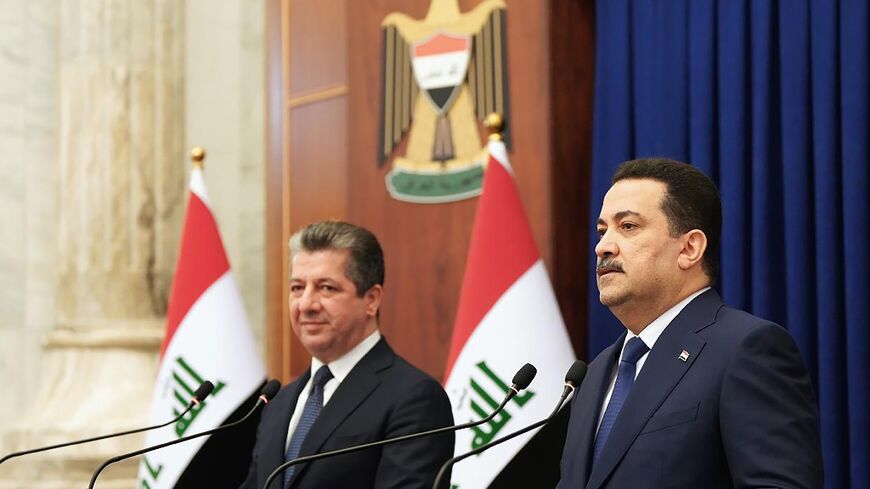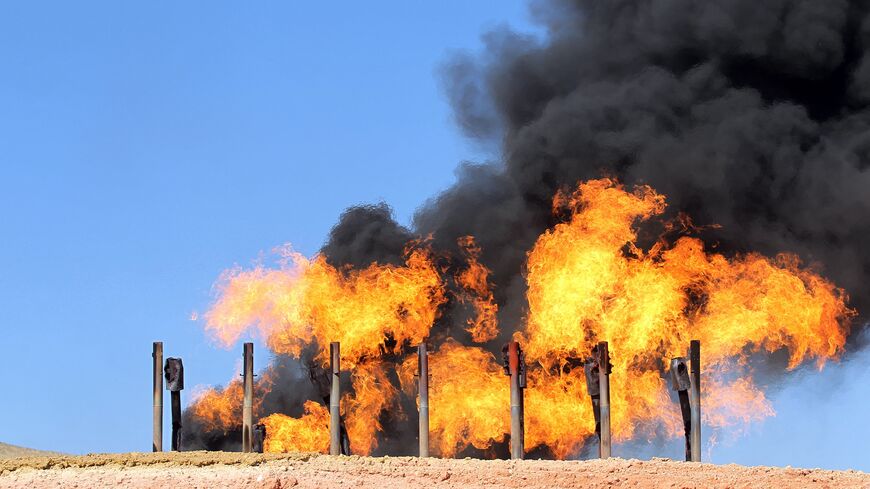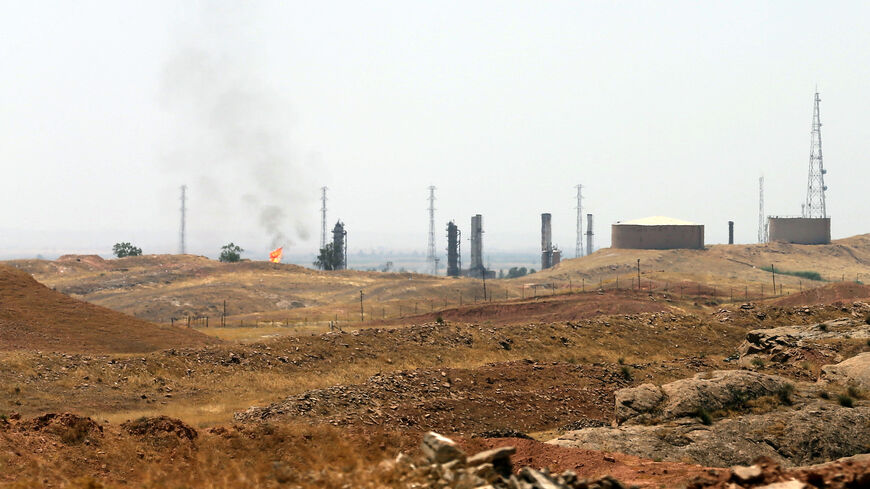Why Turkey plans to end its 52-year oil pipeline deal with Iraq
The Turkish decree stipulated that the 1973 Turkey-Iraq Crude Oil Pipeline Agreement — along with all amendments to the deal — would be terminated effective July 27, 2026.
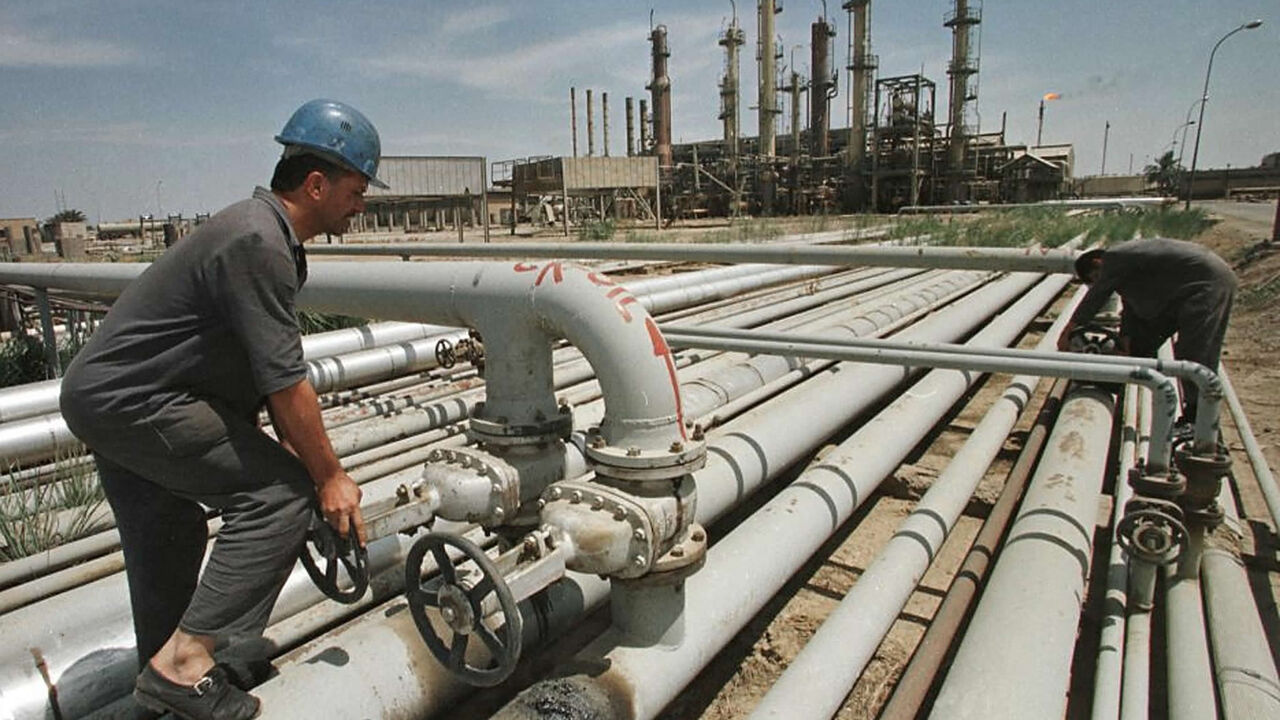
The Turkish government issued a decree late on Sunday to terminate a 52-year-old oil pipeline agreement with Iraq that facilitated the flow of crude between the two countries, effective July next year. The pipeline has not transported oil for more than two years.
What happened: The decree, issued in the Official Gazette and signed by Turkish President Recep Tayyip Erdogan, said that the 1973 Turkey-Iraq Crude Oil Pipeline Agreement — and all subsequent negotiated accords — would be terminated effective July 27, 2026. The agreement, which has been amended and extended over the years, was intended to facilitate the export of crude oil from Iraq to Turkey’s Mediterranean port of Ceyhan.
Why it matters: Turkey closed the pipeline, which passes through the semi-autonomous Kurdistan region, in March 2023 after the International Court of Arbitration ordered the country to pay Iraq $1.5 billion for unauthorized exports between 2014 and 2018. More specifically, the court said Ankara allowed Iraqi-Kurdish authorities to pump crude without Baghdad’s permission.
Before the closure, the pipeline was shipping around 500,000 barrels per day (bpd) of crude. Turkey’s state-owned pipeline operator Botas stated on its website that at full capacity, the entire pipeline system, consisting of two lines, can transfer a total of 1.5 million bpd. On March 31, Al-Monitor reported that Iraq was seeking additional compensation from Turkey in a second international arbitration case for unauthorized exports.
No oil has flowed through the pipeline in more than two years, and talks to resume flows have broken down, in part due to the disagreements between Iraq, the Kurdish government and the firms operating in the area.
Ankara has been pressuring Baghdad to drop the court cases and is frustrated with the underutilization of the pipeline under the current deal. Iraq produced around 4.4 million bpd of crude last year, according to the US Energy Information Administration, making the Middle Eastern nation the second-largest OPEC oil producer, after Saudi Arabia.
A senior Turkish official told Reuters on Monday that the pipeline's underuse was unfortunate, and Ankara is seeking a “new and vibrant phase” in the project. The official said that Turkey wants to negotiate a new deal that would allow both countries to benefit more from the pipeline. However, no further details were given on what Ankara expects from the new arrangement or how the arbitration cases might be resolved.
Know more: Last week, Iraq’s federal government and the Kurdistan regional government agreed to a plan to resume oil shipments. The federal government said after a cabinet meeting that the Kurdistan Regional Government would supply Iraq's Oil Ministry, SOMO, with at least 230,000 bpd for export. Once the oil is received by Turkish authorities at the port of Ceyhan, where Kurdish crude is exported, Baghdad will release funds to pay the salaries of KRG employees.
The Association of the Petroleum Industry of Kurdistan, which represents international oil companies operating in northern Iraq, said in a statement last week that its members "stand ready to resume exports as soon as written agreements are executed that honor our existing contracts which are governed by international law."
The United States has also stepped up its calls for progress. “We have consistently encouraged Baghdad and Erbil to resolve their issues regarding salaries and the reopening of the [Iraq-Turkey pipeline]," State Department spokesperson Tammy Bruce told The New Region. “Addressing these issues quickly would signal that Iraq puts the interests of its people first and is committed to creating an environment in which companies will want to invest.”
Al-Monitor has contacted SOMO for comment on Turkey’s decision to terminate the pipeline agreement.

